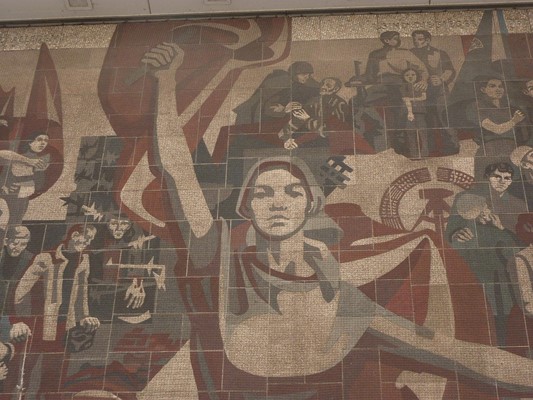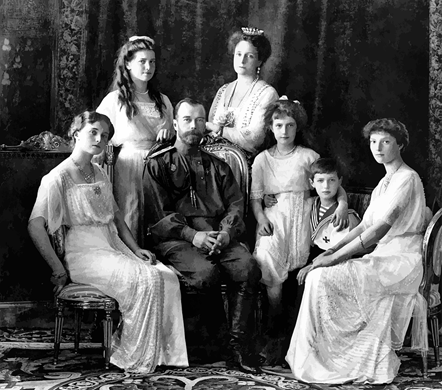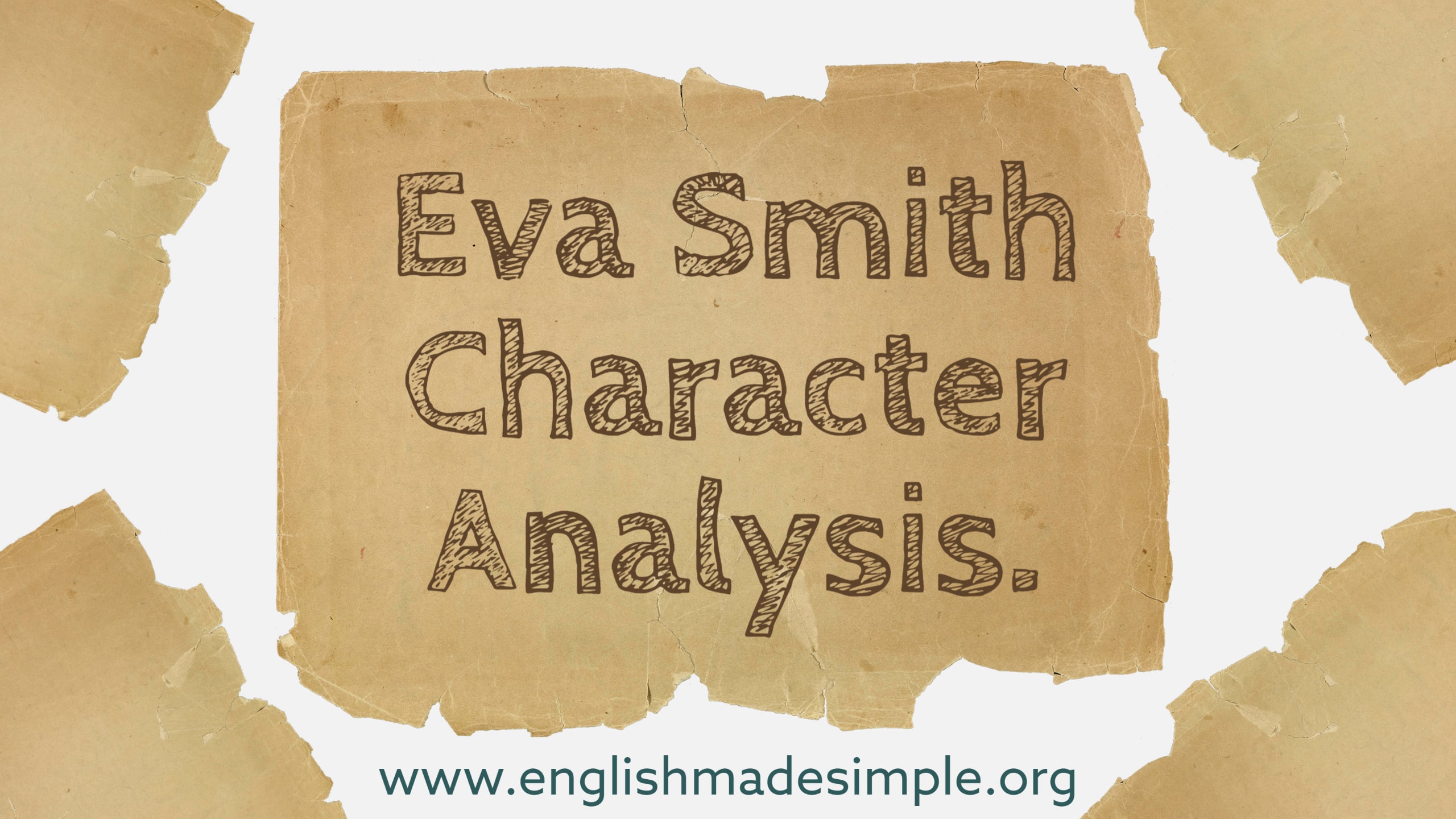Eva Smith, a Character Analysis
The role/function of Eva’s character in the play. In this series of articles we have looked at the role of each character in the play and what function they serve and how Priestley is using them. In terms of Eva Smith:
1. She is used to represent woman in general. Her name ‘Eva’ is very close to ‘Eve’, the name of the mother of humanity as per Abrahamic traditions. Smith is a very common name in England and in fact is used sometimes to refer to a very ordinary person. She is used to represent women but working class women specifically. She thus suffers two fold. First she is from the working class in a very classist society full of socio-economic inequality and in addition to that she is a woman in a heavily patriarchal and conservative society.
2. The reason we never hear her speak and she is physically absent in the play but constantly in our minds and in the conversations may have been deliberate and may have been done by Priestley to show how just as in the play the working class are hidden and voiceless so too are they in real life or in terms of the centres of power. Aristocrats, industrialists, politicians have voices in the places where decisions are made but the millions of working class do not have such a voice.
Though she is the most important person in the play as it is her life which has been lost and that of her child, and her suffering which is talked about, she has no visibility or voice and this seems to be representative of the working class poor who form the overwhelming majority of the British population at that time but whose interests are ignored by the state and elite who control the country.
There is also some confusion as to whether Daisy Renton or Eva Smith are the same person, but it is most likely that they are and it seems to be that Eva changed her name due to various reasons, this could possibly include the fact that having been dismissed from two jobs she may have felt compelled to avoid her identity as she may have been blacklisted by some in the small town where she lived or her name may have acquired a bad reputation. So in this article we will treat Eva and Daisy as one and the same person because all the evidence indicates it.
Eva, a hard worker
We learn different bits of information from the different characters in the play about Eva. One thing we learn is that even the money-obsessed, selfish Mr Birling acknowledges that she was a hard worker.
‘she’d been working in one of our machine shops for over a year. A good worker too. In fact, the foreman there told me he was ready to promote her into what we call a leading operator – head of a small group of girls. ‘
This is important. We know that Eva is not lazy, but despite working hard she is failed by the society which she lives in and its system. Despite being a hard worker she becomes destitute, depressed and dies. Some on the political right would argue that the working class must work hard. However what if, as Eva did, they actually do work hard but still end up in poverty?
Eva/Daisy, a person of integrity and morality.
We also know that Eva is a person of integrity. We know this the inspector says to Eric:
‘The girl discovered that this money you were giving her was stolen, didn’t she?’
To which Eric replies:
‘Yes. That was the worst of all. She wouldn’t take any more, and she didn’t want to see me again.’
In the eyes of the heavily classist British elite at the time, the working class poor were socially inferior and of inferior moral quality. The person who embodies classism the most in the play is Mrs Birling who makes some awfully cruel statements about Eva which include denying her the characteristic of having any sort of morality as we see in the quote:
‘“a girl of that sort would [not] ever refuse money”
So we know that Eva Smith, is honest and hardworking and would not take stolen money.
We know this from the accounts of two wealthy, rich man.
Again Eva herself cannot come out and say she is honest and hardworking. She has no voice in the play or at the Birlings’ dinner table, in the same way that the working class have no voice at the table of British governance.
Despite being honest and hardworking, society fails her. Her honesty might have even caused her death. She refused to take stolen money from Eric, money which would have well helped her to survive as £50 in Britain at that time would have been at least equivalent to £5,000 in modern terms.
Eva, exploited and used physically and sexually.
Eva is exploited both as a working class person for her cheap, underpaid labour and also as a woman for sexual purposes. In fact the inspector says to Eric:
‘“Just used her for the end of a stupid drunken evening, as if she was an animal, a thing, not a person.”
The voiceless Eva, the invisible Eva who is at the mercy of the good will of the rich is described by the inspector as if she is just a ‘thing’ and ‘not a person’. For Birling, Eva was almost equivalent to a machine in his factory in that she was needed for making products. Her humanity was not of great importance to him, only her use and benefit for making goods, much in the same way a machine was of no sentimental value but only served the purpose of making items and thus helping to make money. Capitalism de-humanised people like Eva. It made them ‘things’ akin to factory machines and also ‘animals’.
Eva was treated as an animal in two key ways. First of all animals are used in work e.g. in farming, horses plough the land, donkeys and horses transport goods. Secondly animals are sometimes used to provide pleasure to people for entertainment e.g. in certain sports around the world which include racing, bullfighting and even cock-fighting. Animals are mounted and ridden upon by people, women such as Eva are mounted upon at times physically by men during acts of physical intercourse.
This line from the inspector is very powerful in Priestley’s critique of the de-humanising and cold nature of capitalism.

A sewing machine, an object, a ‘thing’ used for industrial production. Some could argue that capitalists viewed workers like Eva Smith as having the same value as ‘things’ such as machines, only serving the purpose of producing things and making them richer.

A donkey being used to transport items, the inspector compared Eva’s treatment to the treatment of animals.
Potential for rebellion.
The last words of the inspector are this: But just remember this.
One Eva Smith has gone – but there are millions and millions and millions of Eva Smiths and John Smiths still left with us, with their lives, their hopes and fears, their suffering and chance of happiness, all intertwined with our lives, and what we think and say and do. We don’t live alone. We are members of one body. We are responsible for each other. And I tell you that the time will soon come when, if men will not learn that lesson, then they well be taught it in fire and bloody and anguish. Good night.
The treatment of Eva Smith is appalling and her end is tragic, but Priestley mentions there are millions of Eva Smiths and he adds ‘John Smiths’ too.
Why does Priestley mention the word ‘millions’, not just once, not just twice, but three times. No one can be sure but it might be to signify that though the working class are very weak, victims of injustice and bullying by the rich they outnumber the upper class, the rich not just by millions, but by ‘millions and millions and millions’. In terms of sheer numbers the rich and thus the state are outnumbered vastly. The rich are dependent upon the working class just as one part of the body is dependent on other parts of the body. All parts of the body are inter-connected or in Priestley’s words above, ‘intertwined’.

A communist mural depicting a workers revolution with a working class woman, as Eva Smith herself was, in the foreground.
Priestely, as mentioned above, refers to ‘John Smiths’, that is to the working class men of that time. Men possess greater physical strength and it was the working class men that were enlisted to form the British army and to fight wars. What if a discontent working class composed of both men and women mobilised not to fight the German state but to fight British state and its elite?
‘An Inspector Calls’ was written against the backdrop of massive tension and hostility between the American-led capitalist west and the Soviet-led communist east. The Tsar of Russia and his family

The last Tsar of Russia and his family. The Russian empire was replaced by a socialist state which was in theory meant to be for workers. ‘An Inspector Calls’ was first performed in communist Russia (then part of the USSR) itself.
We cannot say for certain that Priestley is using the inspector to hint at a revolution against the unfair capitalist system. We cannot say for certain that Priestley was saying to the British elite that if they did not address the grievances of the millions of Eva Smiths in the country that the ‘fire’ and ‘anguish’ he refers to is a workers revolution. We cannot say this for certain but we can certainly wonder or suspect that is what he was alluding to.
Through the story of Eva Smith, Priestley is showing many things. He shows us that contrary to the arrogance and prejudice of the classist elite at the time the working class are human beings like themselves who also have standards of morality and integrity e.g. the way Eva/Daisy refused to take stolen money from Eric or did not consider him worth marrying. He shows us how precarious their lives could be and how it could be devastated by the actions of the wealthy. He shows us that even if a member of the working class is honest and hard working they could, rather than succeed in Britain of that time, ultimately end up dying in poverty with no social safety net and no state to support them, though they themselves might be people of relatively noble character as the hardworking and honest Eva was.
The last words of the inspector can be interpreted as an ominous threat. In the context of the play, a threat to the Birlings, but in a wider context to the British elite themselves. A threat which would provoke them in to changing and reforming their society due to firstly a sense of being appalled at the suffering of their countrymen and women but also a sense of fear of the consequences if they did not try and make a better, fairer Britain. One Eva Smith might die, but if millions of Eva and John Smiths acted in unison there could be no stopping them.
Useful vocabulary for GCSE students in essays and exam questions.
- Dehumanise – Eva is dehumanised. Birling sees her primarily as a tool with which to make money, his son though not as bad treats her one night as a tool for sexual pleasure. This exploitation of Eva/Daisy for pleasure is almost akin to treating her like an animal. Though it must be added in the long run aside from that particular night, Eric does try to help Eva.
- Interconnected– For different things to be connected or linked to each other. Priestley shows we cannot just live pretending other classes do not exist but we are all interconnected whether we like it or not.
- Integrity– Eva/Daisy is a person of integrity as she refuses to take the stolen money that Eric wants to give her.
- Classist– To have a prejudice towards people based on class or viewing them as inferior. Mrs Birling in particular is extremely classist.
- Revolution– As one person, Eva Smith could do nothing, but if millions of Eva Smiths rebelled there could be a workers revolution as had happened in Russia in 1917, five years after the play is set.

